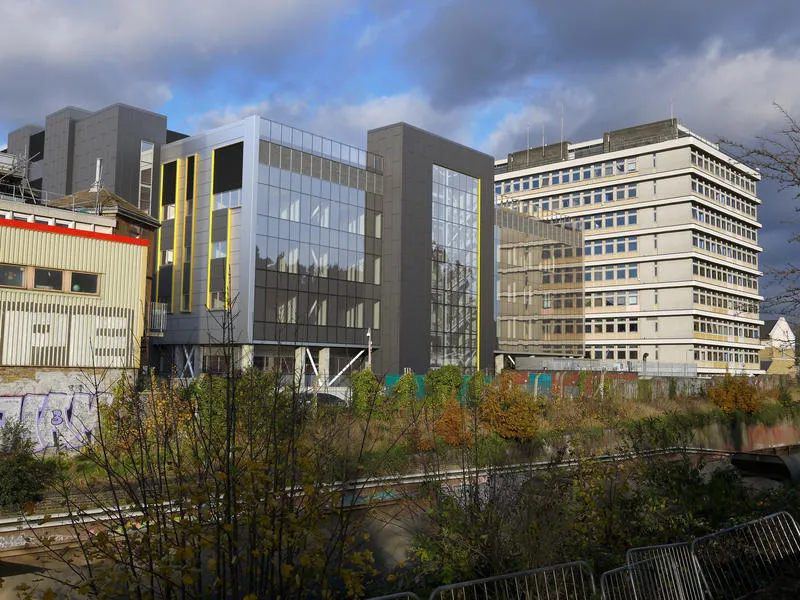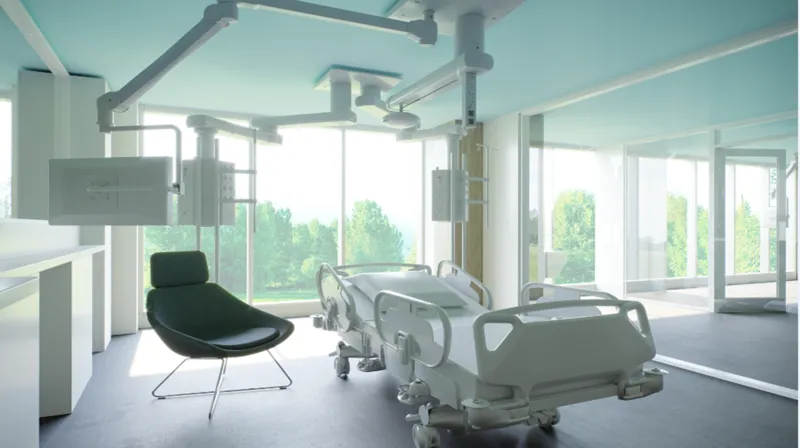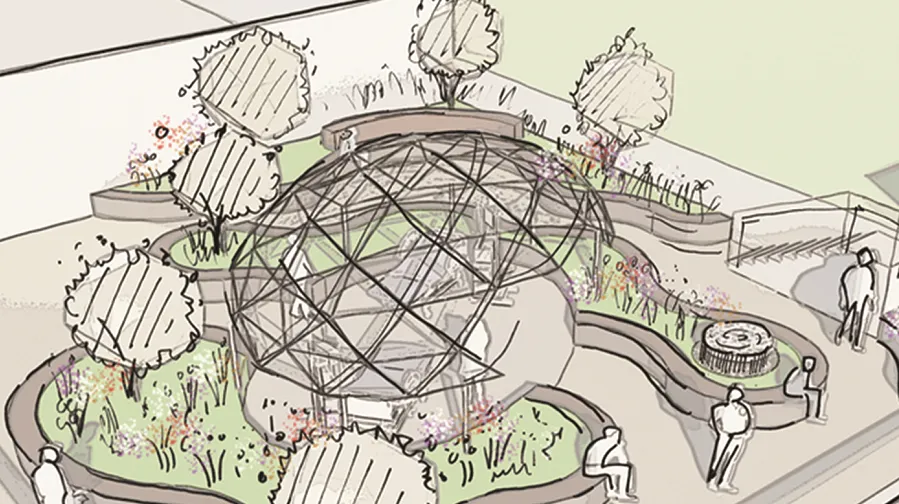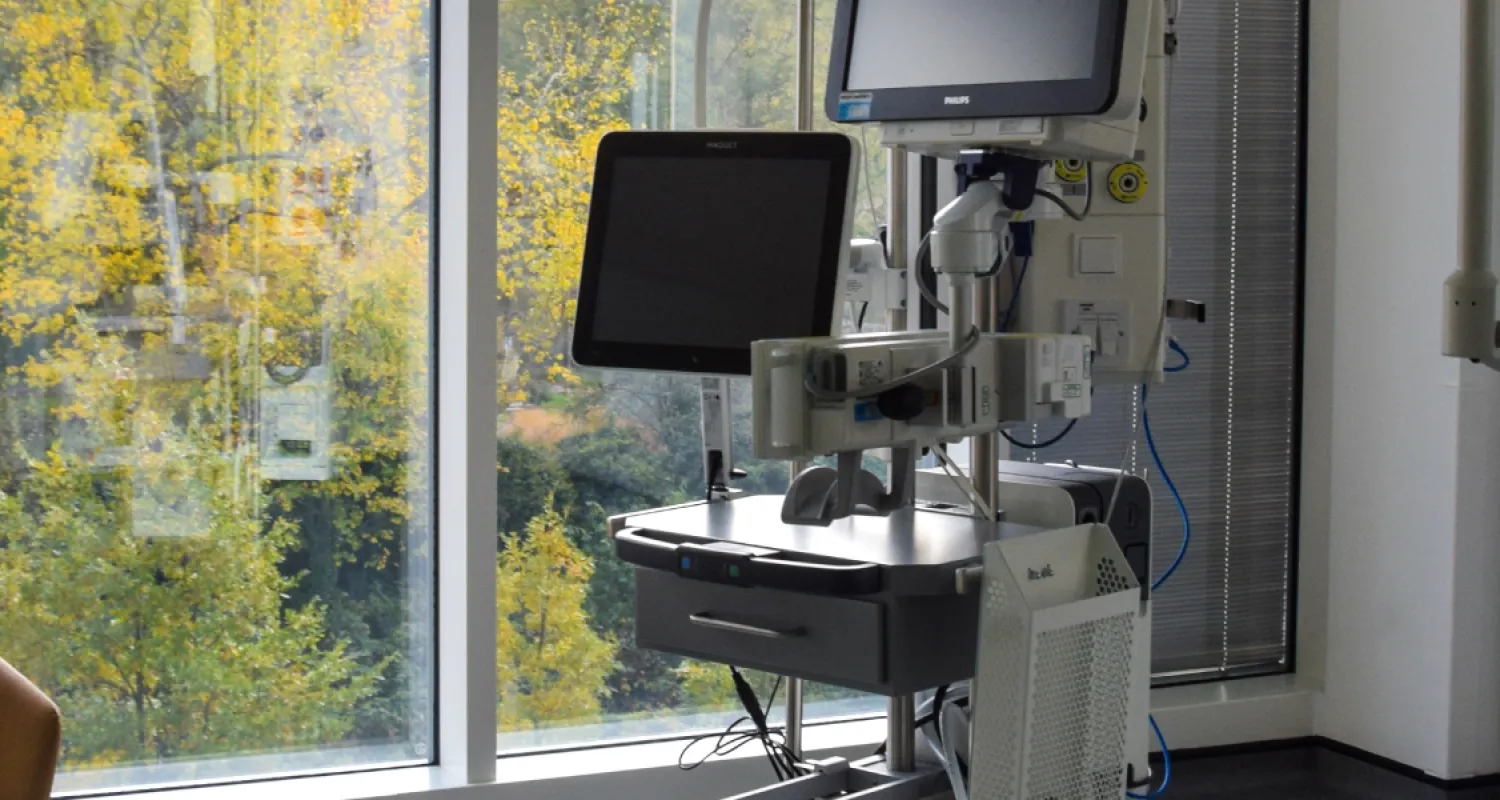
Waking up in critical care can be frightening. Hearing is often the first of the five senses to return, so patients may hear alarms and beeps, but they won’t know what these noises mean. They may not be able to see or move. They will be on strong medication which can cause hallucinations.
Dr Tom Best, Consultant in Critical Care at King’s, said “Some of our most unwell patients spend weeks or even months in critical care while they recover from life-threatening conditions.
“We know from feedback that a significant number of patients suffer from delirium as they drift in and out of consciousness, which can be very frightening and can delay recovery.

Features of the new Critical Care Centre will include:
A bed with a view
Former patients told us they would have liked a good view while they were in hospital. So in the new building, beds will be next to floor-to-ceiling windows looking out onto nearby Ruskin Park. This will flood the building in natural light and allow patients to see the nearby trees. The windows can be opened so patients can feel the breeze.
The ability to look around
Patients also said they wanted to see what’s happening around them. So all beds in the new Centre can be rotated a full 360 degrees by patients, allowing them to look around and choose what they view. Each bed will be surrounded by smart glass panels which patients can turn clear, cloudy or opaque, allowing them to have privacy or to see what’s happening in the Centre.
Keeping in touch using everyday technology
Spending weeks in critical care can be isolating. So to help patients stay in touch with their loved ones, we'll be giving them their own tablet connected to the internet. They will be able to use Skype and Facetime to send messages to friends, say good morning and goodnight to their children, and be part of the important things that make up everyday life, like birthdays.
Artwork
Research shows that seeing pictures of trees can make people feel less stressed. So the new building will include artwork throughout that has been inspired by Ruskin Park. This is just part of our efforts to create an environment that promotes recovery and helps reduce the damaging effects of staying in critical care, such as anxiety.
Roof garden
Going outside can completely change how critically ill patients feel, by giving them something different and positive to focus on. Staff say patients also have an increased drive to get better once they've had a chance to see normal life going around them, outside of a hospital.
So we're designing a rooftop garden. Even patients who are on life support will be able to spend time there, thanks to specially-designed critical care beds, monitoring systems and equipment.

Nicola Crawley fundraised for King’s Critical Care Centre Roof Garden in memory of her husband, Charles Crawley.
“The new Roof Garden will be invaluable in assisting the recovery process of those who are in Critical Care," Nicola said.
"My husband sweet-talked his team into taking him outside three times during his stay on Jack Steinberg. I remember the first time so vividly as he was wheeled out on his bed, still deeply unwell.
This extraordinary expedition was not only a sight to behold, but required the attendance of approximately six medial staff. They only made it as far as the traffic island outside Golden Jubilee Building but sight of the sky and breathing fresh air was a refreshing and uplifting experience for Charles.
The other two times, when he was slightly better, the team took him outside the back door - possibly not the best spot near the dustbins, but Charles didn’t mind a bit as there was blue sky and air. I believe they took his radio and listened to the ongoing Test Match together!
Our heartfelt thanks go constantly to Dr Tom Best and all the truly wonderful medical, nursing and household staff who looked after Charles for so long and these will never cease.”
